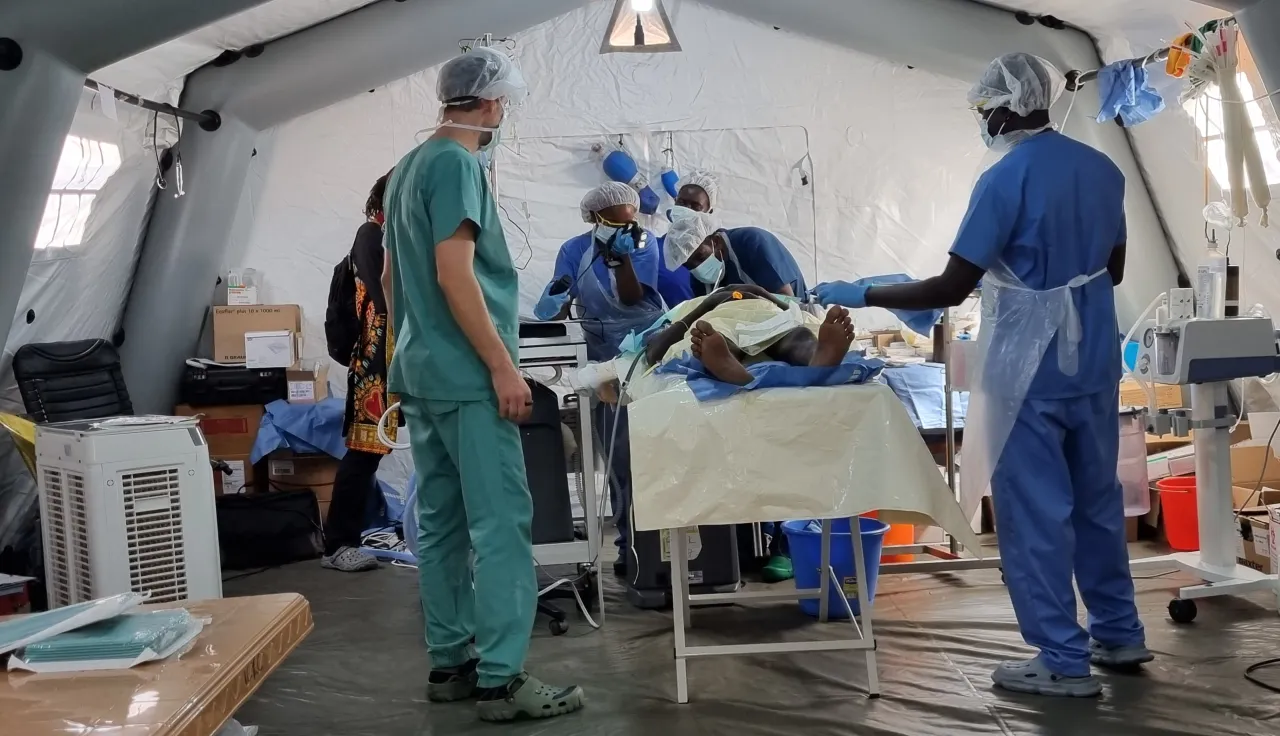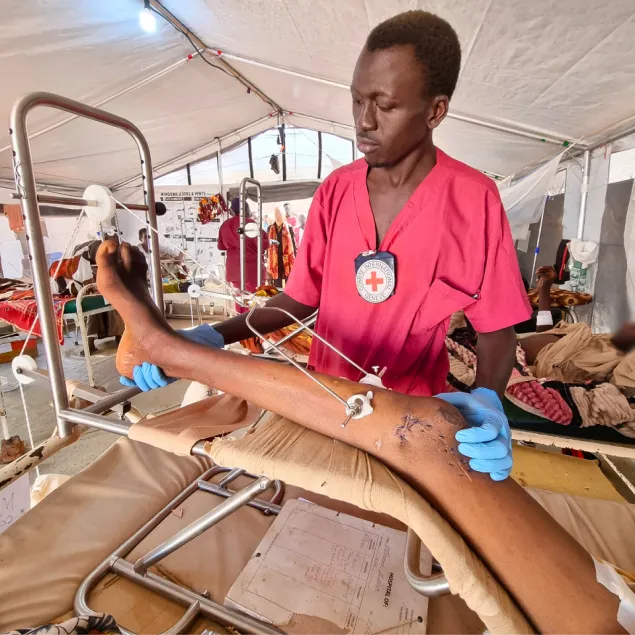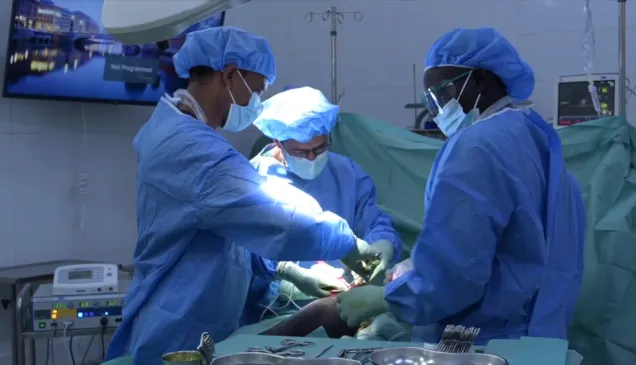South Sudan: ICRC Mobile Surgical Team carries out over 300 surgeries on war wounded injured in the Sudan conflict in Renk town

Renk, a small town in South Sudan's Upper Nile State, is situated on the eastern banks of the White Nile River and is the headquarters of Renk county. Since the outbreak of fighting in Sudan in April 2023, this agricultural town and trading center has become a transit route for hundreds of thousands of desperate and exhausted Sudanese and South Sudanese fleeing the conflict in Sudan.
South Sudanese officials estimate that the number of refugees and returnees in the country has hit the devastating milestone of a million, most of them transiting through Renk, which has struggled to cope with the influx amid poor infrastructure and limited resources.
Since December, it is believed that 150,000 people crossed the Sudanese border into Renk county.
Some arrived with only the clothes on their back in a desperate attempt to escape heavy fighting between rival armed groups in Sudan around the country's Blue Nile, White Nile, and Sennar states. Others crossed with meagre assets and their cattle, trying to save their livelihood means. And, hundreds came with severe wounds from gunshots, but also other types of injuries related to the fighting, all of which required immediate surgical care.
Consequently, on 8 December 2024, the ICRC deployed a surgical mobile team to the area to assist.
The patients conditions included gunshots wounds, some of which were a week old. “Most of our patients arrive after a few days of injury, as it takes some time for them to come to the facility,” explained Dr. Belayneh Assefa Gashaw, the ICRC senior surgeon in Renk.
The modest setup includes a portable operating theater (OT) table, an oxygen concentrator, a portable OT lamp, and Glostavent (anesthesia machine).
The team has erected some 10 tented wards on the grounds of the Renk County Hospital in a partnership with MSF, where ICRC has charge for triage, OT, and post-op physiotherapy, while MSF retains responsibility for post-operative care and the wards.

“The collaboration between the two organizations is smooth and efficient, and both consult on every detail, no matter how small, to ensure that the care services provided to patients are as effective as possible despite often difficult working conditions,” Malek pointed out.
“This mission can be considered a life-saving operation, given the high number of patients whose lives have been saved, thanks to the effective intervention of the Medical Surgical Team and its partners,” he explained.
Dr. Belayneh stressed the importance of dedicated support from the ICRC management in providing the necessary patient care. “We are equipped to provide basic, life-saving surgery to our patients," he acknowledged”.



